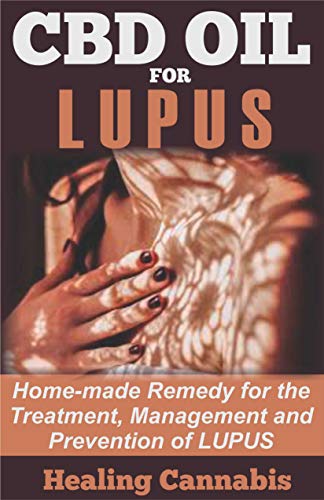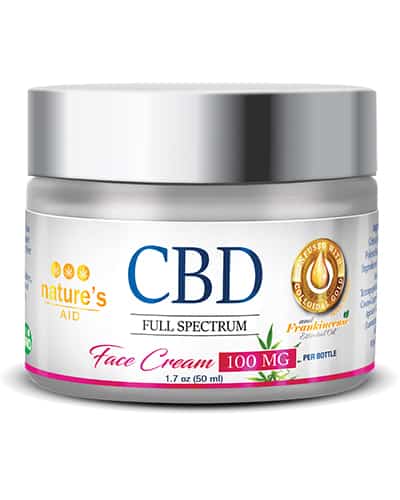
Understanding CBD is important for making the best health and wellbeing decisions. CBD, a compound naturally found in hemp plants, interacts with the receptors in your body’s endocannabinoid systems. This helps your brain and nervous system work properly.
CBD oil can be used to reduce anxiety, improve sleep quality and alleviate chronic pain. It can help boost your immune system as well as protect your skin against sun damage.
There are many different types of CBD products, each with their own unique benefits. Some are better for specific conditions, such reducing pain and improving mood. Others can offer a wide range of benefits, such as anti-inflammatory properties or a natural alternative to prescription drugs.
Understanding the labeling requirements applicable to a specific type of CBD product is essential when buying it. This will help you ensure that the labeling is up to standard and that your CBD is delivering what it promises on the label.

A certified manufacturer of quality will always include a COA (independent certificate of analysis). A COA will have test results that can be used as proof that the product contains the correct amount of THC.
The COA will show the date of testing and the lab that conducted the tests. It will also include the analyst's name and report ID, which can be useful if you ever need to contact the lab for further information.
Another important aspect of a COA is the listing of heavy metals contained in CBD. This is crucial because heavy metals should not be ingested in concentrations that are higher than safe.
Many products are available that have been tested to remove heavy metals from your CBD. These products include sprays and tinctures that can be applied under the tongue, and vapes that have CBD extracts.
CBD use can be dangerous, especially for those with a history of liver disease. In addition, CBD may interact with certain medications that thin your blood or cause nausea.

Always consult your doctor before you begin any new health or beauty routine. Your doctor can help you decide if CBD is right for you and provide you with the proper dosages.
As there are some CBD brands that use low quality or synthetic ingredients, make sure you get high-quality CBD products. The best way to ensure you get what you pay is to choose a trusted brand.
It is also a smart idea to ask the company about their history and how many customers they have served. This is a great way for you to find out if they are trustworthy and legitimate or just trying to make as much money as possible.
FAQ
What are some of the best CBD brands to buy?
These five top CBD brands are hand-picked by our team based on value, reliability, quality, and price.
They provide high-quality CBD oils that have less than 0.2% THC.
Our list of top CBD vendors worldwide is also recommended.
Is the CBD market saturated?
The CBD industry is experiencing a growth rate of over 25% annually. This growth is expected continue for at most five more years. In fact, the industry is expected grow from $2Billion today and $5Billion by 2020.
Two companies dominate the CBD market: GW Pharmaceuticals (Canndoc Ltd) and Canndoc Ltd. Both companies have a focus on creating pharmaceutical-grade products. However, they have not been very successful thus far. Both are struggling to get traction on market.
Cannabidiol or CBD is a form of cannabis extract with less than 0.3% HHC. It doesn't produce any psychoactive effects. It is used as a treatment for epilepsy and other medical conditions. It can also be used as a dietary supplement.
There are many types of CBD products. Some CBD products are made with whole plants extracts, others use CBD isolates.
These products all share one thing in common: low levels are THC.
They are thus legal under US federal legislation. You will still need to follow local laws if you are selling CBD products. Always check your state's laws regarding CBD products.
Some states also make CBD products illegal. These are California, Colorado. Florida. Mississippi. Missouri. New York. North Carolina. Ohio. Oklahoma. Oregon. Rhode Island. South Dakota. Texas. Utah. Virginia. Washington.
CBD products should not be made if you reside in these states.
What is the future of the CBD industry?
The future looks bright for CBD. It's easy for people to get on board with this sector. With CBD products accounting for over $1Billion in global consumer spending, it is easy to see how the market is growing exponentially.
Statista reports that in 2019, global sales of CBD (cannabidiol) are expected to exceed $22.4 Billion. That's almost 200% more than in 2018!
The CBD market is also forecast to grow at 22.5% compound annual growth rate, which would result in nearly $6.8B in revenue by 2022.
This is great news, both for new companies and those that are already active in the industry. We must remember that the CBD market still has a lot of work ahead.
Where can I buy CBD products?
CBD can be bought online or at your local retailer. Online retailers often offer better deals. Many websites sell CBD products made with industrial hemp. The THC content is less than 0.3%.
You can shop locally if you prefer to buy CBD products from brick-and-mortar stores.
Many states allow CBD products to legally be bought without prescription. CBD products may be available at your local pharmacy if the state you reside is one of them.
CBD products could even be delivered to your home.
How much CBD do you need?
The type of product you are buying will determine how much dosing is required.
CBD oils come in a variety of strengths, ranging from 100mg-1000mg per bottle.
Some companies make CBD products with specific dosages, such as 25mg, 50mg, 75mg, and 100mg.
Charlotte's Web, for instance, produces CBD products that are high in CBD and other cannabinoids.
Start with a low dosage if you are unsure if CBD is right for you.
You can always go up later.
Statistics
- OralWhere HED is the human equivalent dose, and Km is a correction factor estimated by dividing the average body mass (BM) of the species (60, 0.020, and 0.150 kg for 11 humans, mice, and rats, respectively) and by its surface area (see: Nair et al. (ncbi.nlm.nih.gov)
- While the primary injury may not be treatable, interventions that attenuate secondary sequelae are likely to be of benefit [203].Only one study (ncbi.nlm.nih.gov)
- As a substance that was federally illegal before the passage of the 2018 Farm Bill, hemp-derived cannabinoids with no more than 0.3% THC still face a regulatory grey area. (forbes.com)
- The inhibition of FAAH is predicted to lead to an increase in brain and plasma concentrations of AEA, which acts as a partial agonist at CB1R and CB2R, thereby increasing endocannabinoid tone [92, 110]. (ncbi.nlm.nih.gov)
- HR −16 mmHg; 95% CI −26, −6; I2 = 92%) (ncbi.nlm.nih.gov)
External Links
How To
What are the common issues in the CBD industry?
The current market for CBD products is growing at an incredible rate. However, this market is still full of challenges for businesses that want to expand. These include a lack consumer awareness, high-cost entry, limited access capital and regulatory uncertainty.
Many consumers don't understand what CBD is and how it works. They are unable to make an informed decision about buying CBD products.
Many CBD companies depend heavily on word of mouth marketing. This is costly, as it requires advertising and the hiring of staff to promote their brand.
The high production costs are another issue that new entrants to the CBD industry face. The raw materials needed to create CBD products are quite expensive. CBD oil can only be made if hemp is grown in the right climate and soil conditions.
For CBD oil to be produced, you need to plant enough hemp. This costs about $1,000 an acre. This means that many small farmers cannot afford the cost of starting.
Access to capital is another challenge for new entrants in the CBD market. Due to the stigma surrounding the industry, banks discourage many people who wish to start businesses.
The sale of CBD products is still subject to regulatory uncertainty. There are currently no clear guidelines regarding how CBD products should be marketed.
While some states have passed legislation restricting CBD products' sale, it has not been adopted as a national policy.
Only two states, Nevada and Maine, have yet to legalize recreational marijuana.
Massachusetts and Michigan have considered similar measures.
These changes could result in increased competition between CBD manufacturer.
These factors have led many entrepreneurs to choose to work remotely rather than starting a physical business.